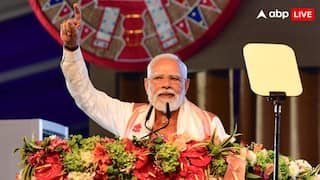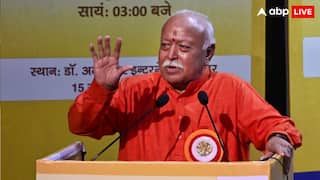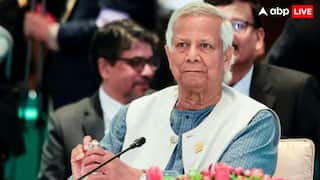UGC Chairman Holds Meeting To Review Implementation Of National Education Policy
Speaking to ABP Live Prof. M. Jagadesh Kumar said that many CUs have adopted the guidelines of multiple entry and exit at the UG/PG level and are creating provisions for implementing the same.

UGC Chairman Prof. M. Jagadesh Kumar meets the Vice-Chancellors of 45 Central Universities to review the progress of NEP-2020 implementation in central universities. This meeting was live-streamed on all UGC social media platforms so that all other Universities can watch it. Each CUs presented their experiences and achievements in the process of implementing various mandates of NEP-2020 and highlighted their success stories. It is to be noted that CUs have made considerable progress in adopting and implementing some of the pertinent provisions of NEP-2020.
UGC Chairman Prof. M Jagadesh told ABP Live: "Many CUs have adopted the guidelines of multiple entry and exit at the UG/PG level and are creating provisions for implementing the same. CUs have implemented the necessary changes in their ordinances to PG, UG, and UG-PG integrated programmes for multiple entrance-exit, permitting flexible entry and exit points by removing strict limits to facilitate new opportunities for lifetime learning enrolled for academic credits bank portal."
"The curricula of the academic programmes have been revised to incorporate multidisciplinary aspects, skill components, value education, and contemporary relevance for the community, society, and the nation," Prof Kumar added.
Some of the successful implementation initiatives undertaken by CUs are as under:
- All Central Universities have registered their institutions on the Academic Bank of Credits (ABC) portal and are also onboarding their students on the portal so that their credentials can be uploaded in a smooth manner. Students’ registration drive for ABC is ongoing in many universities.
- Many CUs have adopted the guidelines of multiple entry and exit at the UG/PG level and are creating provisions for implementing the same.
- The UG admissions are taking place under CUETs by all the CUs.
- Academic programs' curricula have been updated to include interdisciplinary elements, skill-based components, value education, and current relevance to the community, society, and the nation.
- More certificates, diplomas, and UG/PG programmes in vocational education have been introduced. The CUs have formulated skill enhancement courses comprising soft and technical skills for the all-round development of the learners.
- Internship programmes with credits are being offered in various programmes taking account of students’ fields and preferences. Community outreach and projects are embedded in the degree programmes. Internship opportunities with local businesses, industries, artists, and craftspeople, as well as research internships with other HEIs/research institutions, are also available.
- Research and innovation are being promoted in CUs by establishing R&D cells, incubation and innovation centres and centres for advanced research.
- The Universities have adopted the SWAYAM regulations for credit transfers, and students have started transferring from the MOOCs. They have also integrated online platforms into curricula for the promotion of blended learning.
- Some CUs have their learning management system where e-content prepared by the faculty is uploaded.
- Credit courses have been introduced at UG/PG level on IKS, culture, values and traditions, personality development, yoga, meditation and stress management.
- Programmes and degrees in art and museum administration, artefact conservation, graphic design, and web design have been introduced.
- The department of translation studies has been established to provide high-quality programmes and degrees in translation and interpretation. They are also making efforts to promote local and Indian languages as their medium of instruction.
- The Universities have adopted UGC Guidelines on Pursuing Two Academic Programmes Simultaneously.
- Adopted the position of Professor of Practice in various domains, and the appointments are taking place accordingly.
- An international affairs office and alumni office have also been established to coordinate all matters about international students and alumni.
- The CUs are making efforts to have academic collaborations with foreign universities for twinning, joint and dual degrees. Some universities are offering twinning programmes with several foreign universities.
- Some CUs have adopted villages under Unnat Bharat Abhiyan to foster social responsibility and community engagement.
- CUs are using the SAMARTH- university information management system.
The University Grants Commission is soon launching the “UTSAH- Undertaking Transformative Strategies and Actions in Higher Education” Portal for gathering information regarding the qualitative reforms made by higher educational institutions.
Education Loan Information:
Calculate Education Loan EMI






































